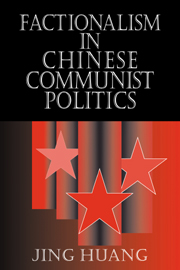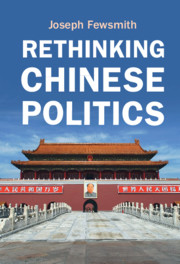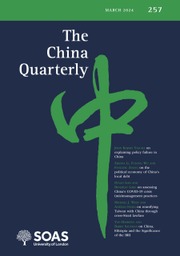Factionalism in Chinese Communist Politics
Factionalism is widely understood to be a distinguishing characteristic of Chinese politics. In this book, first published in 2000, Jing Huang examines the role of factionalism in leadership relations and policy-making. His detailed knowledge of intra-party politics offers an alternative understanding of still-disputed struggles behind the high walls of leadership in Zhongnanhai. Huang traces the development of factional politics from its roots in the 'mountaintops' and the enduring impact of the personal bonds formed between Mao and his supporters at the Yan'an Round Table. Critiquing the predominant theories on leadership and decision-making, he explains that it is not power struggles that give rise to factionalism, but rather the existence of 'factionalism that turns power into an overriding goal in CCP politics'. Huang explains why policy outcomes switched constantly between 'Left-adventurism' and 'Right-conservatism' under Mao's reign and between 'emancipation of mind' and 'socialist spiritual civilization' in the Deng era.
- Provides a systematic and detailed examination of factionalism in Chinese politics and its impact on political outcomes in China
- Presents fluid interconnection between military and civilian elite politics
- Comprehensive coverage of vast literature on Chinese leadership including recently published Chinese memoirs
Reviews & endorsements
"Huang's provocative and penetrating book focuses on the role of factionalism in leadership relations and policy making. Huang (Utah State Univ.) cogently argues that factionalism may promote progress toward a more open and pluralistic system. . . . Strongly recommended." Choice
"The internal working of non-institutionalized politicial system are always at once fascinating and impenetrable. Where the political system under analysis is a major Communist Party state, the newsworthiness, as well as the intellectual puzzle, is clearly enhanced...It is interesting, though, to read" THE CHINA JOURNAL
"Jing Huang's Fractionalism in Chinese Communist Politics is an excellent work of political science." American Journal of Chinese studies
"Jing Huang has written a significant book...The book is supported by high-quality maps, graphs and tables. It offers an informed, thorough and insightful examination of regional development in China. Editing a monograph is a challenging undertaking and Li and Tang should be congratulated for their successful efforts. I highly recommend this book to students and scholars of urban and regional development in China." Pacific Affairs
Product details
November 2006Paperback
9780521032582
480 pages
228 × 151 × 27 mm
0.71kg
15 b/w illus. 15 tables
Available
Table of Contents
- List of figures and tables
- Preface
- List of abbreviations
- Introduction
- 1. Factionalism, the puzzle of Chinese communist politics
- 2. Factionalism and the political system in China
- 3. The establishment of the Yan'an round table
- 4. The transition of the Yan'an round table
- 5. Crises in leadership relations with the two-front arrangement
- 6. The collapse of the Yan'an round table and the unleashing of factionalism
- 7. Deng Xiaoping's dominance: factionalism prevails over the party spirit
- 8. Conclusion
- Selected bibliography
- Index.








